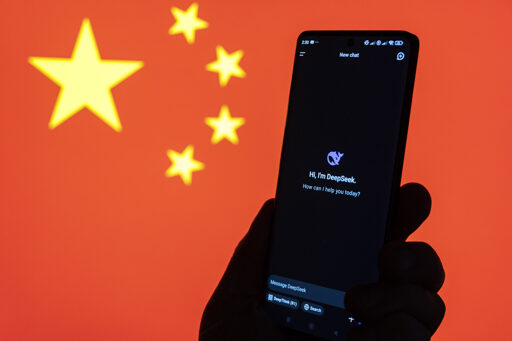cross-posted from: https://lemmy.sdf.org/post/32830658
[This is an op-ed by Valentin Weber, senior research fellow with the German Council on Foreign Relations. He is the author of the International Forum for Democratic Studies report “Data-Centric Authoritarianism: How China’s Development of Frontier Technologies Could Globalize Repression.” His research covers the intersection of cybersecurity, artificial intelligence, quantum technologies, and technological spheres of influence.]
[…]
While the financial, economic, technological, and national-security implications of DeepSeek’s achievement have been widely covered, there has been little discussion of its significance for authoritarian governance. DeepSeek has massive potential to enhance China’s already pervasive surveillance state, and it will bring the Chinese Communist Party (CCP) closer than ever to its goal of possessing an automated, autonomous, and scientific tool for repressing its people.
[…]
With the world’s largest public AI-surveillance networks — “smart cities” — Chinese police started to amass vast amounts of data. But some Chinese experts lamented that smart cities were not actually that smart: They could track and find pedestrians and vehicles but could not offer concrete guidance to authorities — such as providing police officers with different options for handling specific situations.
[…]
China’s surveillance-industrial complex took a big leap in the mid-2010s. Now, AI-powered surveillance networks could do more than help the CCP to track the whereabouts of citizens (the chess pawns). It could also suggest to the party which moves to make, which figures to use, and what strategies to take.
[…]
Inside China, such a network of large-scale AGI [Artificial General Intelligence] systems could autonomously improve repression in real time, rooting out the possibility of civic action in urban metropolises. Outside the country, if cities such as Kuala Lumpur, Malaysia — where China first exported Alibaba’s City Brain system in 2018 — were either run by a Chinese-developed city brain that had reached AGI or plugged into a Chinese city-brain network, they would quietly lose their governance autonomy to these highly complex systems that were devised to achieve CCP urban-governance goals.
[…]
As China’s surveillance state begins its third evolution, the technology is beginning to shift from merely providing decision-making support to actually acting on the CCP’s behalf.
[…]
The next step in the evolution of China’s surveillance state will be to integrate generative-AI models like DeepSeek into urban surveillance infrastructures. Lenovo, a Hong Kong corporation with headquarters in Beijing, is already rolling out programs that fuse LLMs with public-surveillance systems. In [the Spanish city of] Barcelona, the company is administering its Visual Insights Network for AI (VINA), which allows law enforcement and city-management personnel to search and summarize large amounts of video footage instantaneously.
[…]
The CCP, with its vast access to the data of China-based companies, could use DeepSeek to enforce laws and intimidate adversaries in myriad ways — for example, deploying AI police agents to cancel a Lunar New Year holiday trip planned by someone required by the state to stay within a geofenced area; or telephoning activists after a protest to warn of the consequences of joining future demonstrations. It could also save police officers’ time. Rather than issuing “invitations to tea” (a euphemism for questioning), AI agents could conduct phone interviews and analyze suspects’ voices and emotional cues for signs of repentance. Police operators would, however, still need to confirm any action taken by AI agents.
[…]
DeepSeek and similar generative-AI tools make surveillance technology smarter and cheaper. This will likely allow the CCP to stay in power longer, and propel the export of Chinese AI surveillance systems across the world — to the detriment of global freedom.
[Edit typo.]
This article has a lot of problems.
- It starts with a lot of unhelpful fearmongering, including around non-existent “AGI” that plays perfectly into the hands of protectionist AI bros like Sam Altman.
- It ignores the fact the US is the one exporting terrorism with AI products to Israel. Again, to the benefit of American interests.
- It basically states outright that China is evil because it made AI less expensive. Implicitly, I suppose, this suggests American hyperscalers that are killing our planet are somehow the more ethical option. Which is gross.
- It’s published by the NED, which is basically government funded.
But I find your posts to be unconstructive in general, so I’ll repeat the exact same criticism I made last time, and hope you heed it:
Consider switching up your exclusive “China Bad” posting a little. These articles are getting so obscure, that you probably had to peel through a good amount of stuff that people [in the privacy community] would find way more relevant.
Removed by mod
Addendum: Your source is really bad. Its viewpoints are American exceptionalism to the extreme, and to the stupid. In another article, “how autocrats weaponize AI”, which was published last month, it refuses to call the Trump regime an autocracy, and praises AI when the good guys do it.
It also has the dumbest sentence describing Signal I’ve seen in my life:
Encryption apps like Signal use AI to ensure secure communication and protect activists from government surveillance.
I don’t know what the author was smoking when they wrote that, but Signal does not use any AI.
The article is written like a pro-AI sales pitch. (Considering the author, it might just be a sales pitch.)
The delay in providing activists with AI training and resources has profound implications. Frontline activists are left out of critical conversations about how AI should be developed and deployed.
What is a better source for this topic?
Privacy? Activism?
AI?
General tech?
- https://www.wired.com/ - at least you’ll find better articles
- https://www.techdirt.com/
- https://www.theregister.com/
so, it’s only bad when China does it, but when Google/apple/Microsoft/Facebook do it, it’s ok.
make proper costumer protection laws that regulates all of them. not just “china bad” and bootlick Google.
This is transparent anti-china slop.
I don’t think it would be any worse than US exporting democracies around the world.



